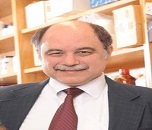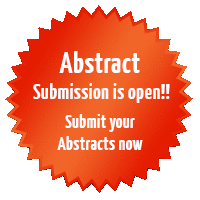Renowned Speakers

Pierre Talbot
Professor Canada

Harry W. Schroeder
University of Alabama at Birmingham USA

Nataliya M Kushnir
Institute of Integrative Immunology USA

Francesca Mancini
Glaxo Vaccines Institute For Global Health (GVGH) Italy

Michel Leclerc
laboratory of Immunology of Invertebrates France

Thamer A Hamdan
University of Duisburg-Essen Germany

Stephen Ward
University of Bath UK

Reinhard Pabst
Institute for Immunomorphology Germany
Recommended Global Cardiology Webinars & Conferences
Europe & UK
Asia Pacific & Middle East
Canada
Autoimmunity 2023
About Conference
“17th International Congress on Autoimmunity”
The goal of the International Research Conference, a federated organisation, is to bring together a sizable number of various scholarly activities for presentation during the conference. During the conference, activities will take place over a period of time depending on the quantity and length of the presentations. For students, scholars, and business researchers, it offers an amazing value because to its high calibre.
In order to exchange experiences and research findings on all facets of autoimmune disorders, the International Conference on Autoimmunity Disorders will bring together top academic scientists, researchers, and research scholars. Additionally, it offers an outstanding interdisciplinary forum for researchers, practitioners, and educators to share and discuss the most recent innovations, concerns, and trends as well as real-world difficulties and solutions found in the fields of Autoimmunity Disorders
Why to attend?
The conference welcomes submissions of research abstracts, papers, and e-posters from prospective authors, who are graciously urged to participate and help create the conference. Additionally, we cordially invite high calibre research contributions outlining original and unpublished findings of conceptual, constructive, empirical, experimental, or theoretical work in all areas of autoimmune disorders for presentation at the conference. The conference invites contributions in the form of abstracts, papers, and electronic posters that discuss the conference's themes and topics and include figures, tables, and references to cutting-edge research resources.
Target Audience:
· Allergists
· Immunologists
· Microbiologists
· Pediatricians
· Physicians
· Academicians
· Health Care experts
· Young Research Scholars
· Students
· Society and Organizational Members
Sessions & Tracks
Track1: Thyroid Autoimmunity
Autoimmune thyroiditis is a chronic disease in which the body interprets the thyroid glands and its hormone products T3, T4 and TSH as threats, therefore producing special antibodies that target the thyroid’s cells, thereby destroying it. The symptoms may vary depending on the thyroid function, i.e. hyperthyroidism or hypothyroidism. Hyperthyroidism will cause sweating, speedy pulse rate, anxiety, tremors, fatigue, problem sleeping, unexpected weight loss, and sticking eyes. Hypothyroidism will cause weight gain, fatigue, dry skin, hair loss, intolerance to cold, and constipation. Autoimmune thyroiditis has a higher prevalence in societies that have a higher intake of iodine in their diet
Track 2:Epidemiology and Prevention
Epidemiology is the theoretical foundation we use to describe the occurrence of diseases and the correlation between living conditions, environmental conditions, hereditary conditions and health. Within the field of epidemiology, we also use quantitative methods to evaluate the effect of different treatments and preventative activities.The methodology used is designed to provide valid (unbiased) information from groups of individuals, for the purpose of testing hypotheses and finding characteristics in the health of the population. Epidemiological data provides the quantitative basis for public health policy and clinical practice, and is the foundation for preventive measures in public health work.
Epidemiology today constitutes a significant part of medical scientific activity. Epidemiological methods are associated with the planning, implementation, statistical analysis and interpretation of a significant part of surveys within social medicine.
Track 3:Clinical Rheumatology
We diagnose and treat: arthritis causing inflammation, such as rheumatoid arthritis and psoriatic arthritis. lupus and other connective tissue diseases, such as vasculitis and myositis. metabolic bone diseases, such as complex osteoporosis .
Track 4:Pediatric Rheumatology
The most common group of paediatric rheumatic diseases are the juvenile idiopathic arthritides followed by juvenile-onset systemic lupus erythematosis (SLE), and rarer diseases such as juvenile dermatomyositis, primary vasculitides and scleroderma.
Track 5:Gastrointestinal Autoimmunity
Crohn's disease is a chronic, inflammatory disease of the gastrointestinal tract. It is an autoimmune disorder, meaning your body's immune system mistakenly attacks healthy tissue in your body. Crohn's disease is chronic (ongoing), and may appear and disappear at various times.
Track 6:Alopecia Areata
Alopecia areata is a disease that happens when the immune system attacks hair follicles and causes hair loss. Hair follicles are the structures in skin that form hair. While hair can be lost from any part of the body, alopecia areata usually affects the head and face.
Track 7:Ankylosing Spondylitis (AS)
Ankylosing spondylitis is a type of arthritis that causes inflammation in the joints and ligaments of the spine. Normally, the joints and ligaments in the spine help us move and bend. If you have ankylosing spondylitis, over time, the inflammation in the joints and tissues of the spine can cause stiffness.
Track 8:Antiphospholipid Syndrome
Antiphospholipid syndrome (APS), sometimes known as Hughes syndrome, is a disorder of the immune system that causes an increased risk of blood clots. This means people with APS are at greater risk of developing conditions such as: DVT (deep vein thrombosis, a blood clot that usually develops in the leg.
Track 9:Autoimmune Hepatitis
Autoimmune hepatitis occurs when the body's immune system, which ordinarily attacks viruses, bacteria and other pathogens, instead targets the liver. This attack on your liver can lead to chronic inflammation and serious damage to liver cells.
Track 10:Celiac Disease
Celiac disease (CD) is an autoimmune condition affecting the small intestine, triggered by the ingestion of gluten, the protein fraction of wheat, barley, and rye. There is a strong linkage between CD and HLA-DQ2 and HLA-DQ8 haplotypes.
Track 11:Fibromyalgia
Fibromyalgia is a chronic disorder which is characterized by widespread pain, tenderness and fatigue. Persons with fibromyalgia may also experience sleep disturbances, morning stiffness, anxiety, and irritable bowel syndrome. Often it is also accompanied by depression. It is difficult to diagnose because most of the symptoms mimic those of other disorders.
Track 12:Juvenile Idiopathic Arthritis (JIA)
JIA types are autoimmune or autoinflammatory diseases. That means the immune system, which is supposed to fight invaders like germs and viruses, gets confused and attacks the body’s cells and tissues . This causes the body to release inflammatory chemicals that attack the synovium (tissue lining around a joint). It produces fluid that cushions joints and helps them move smoothly. An inflamed synovium may make a joint feel painful or tender, look red or swollen or difficult to move.
Track 13:Mixed Connective Tissue Disease (MCTD)
Mixed connective tissue disease (MCTD) has signs and symptoms of a combination of disorders — primarily lupus, scleroderma, and polymyositis. Many people with this uncommon disease also have Sjogren's syndrome. For this reason, MCTD is sometimes called an overlap disease.
In mixed connective tissue disease, the symptoms of the separate diseases usually don't appear all at once. Instead, they tend to occur over a number of years, which can complicate diagnosis.
Track 14:Myasthenia Gravis
Myasthenia gravis is a chronic autoimmune, neuromuscular disease that causes weakness in the skeletal muscles (the muscles that connect to your bones and contract to allow body movement in the arms and legs, and allow for breathing)
Track 15:Osteoarthritis
Osteoarthritis is the most common form of arthritis, affecting millions of people worldwide. It occurs when the protective cartilage that cushions the ends of the bones wears down over time. Although osteoarthritis can damage any joint, the disorder most commonly affects joints in your hands, knees, hips and spine.
Track 16:Polymyalgia Rheumatica
Track Polymyalgia rheumatica is an inflammatory disorder that causes muscle pain and stiffness, especially in the shoulders and hips. Signs and symptoms of polymyalgia rheumatica (pol-e-my-AL-juh rue-MAT-ih-kuh) usually begin quickly and are worse in the morning.
Track 17:Polymyositis and Dermatomyositis
Polymyositis and dermatomyositis are autoimmune diseases that cause inflammation of the muscles, most commonly the upper arms and thighs, resulting in weakness. Polymyositis affects mainly the muscles while dermatomyositis can cause skin lesions in addition to muscle inflammation.
Track 18:Psoriatic arthritis
Psoriatic arthritis is a form of arthritis that affects some people who have psoriasis — a disease that causes red patches of skin topped with silvery scales. Most people develop psoriasis years before being diagnosed with psoriatic arthritis.
Track 19:Rheumatoid arthritis
Rheumatoid arthritis is an autoimmune condition, which means it's caused by the immune system attacking healthy body tissue. However, it's not yet known what triggers this. Your immune system normally makes antibodies that attack bacteria and viruses, helping to fight infection.
Track 20:Sarcoidosis
Sarcoidosis is an autoimmune related disease that leads to inflammation, usually in your lungs, skin, or lymph nodes. It starts as tiny, grain-like lumps, called granulomas. Sarcoidosis can affect any organ in your body. No one is sure what causes sarcoidosis.
Track 21:Septic arthritis
Septic arthritis is inflammation of the joints secondary to an infectious etiology such as bacterial, fungal, mycobacterial, viral, or other pathogens. It is usually monoarticular, however, polyarticular septic arthritis involving many or smaller joints may also occur.
Track 22:Soft Tissue Rheumatism
Soft tissue rheumatism includes disorders of tendons and their sheaths, ligaments, bursae, joint capsules, muscles, fasciae and others.
Track 23:Spondyloarthritis
Spondyloarthritis is a group of diseases characterized by inflammation in the spine (“spondylitis”) and joints (“arthritis”). Types of spondyloarthritis include: Ankylosing spondylitis. Axial spondyloarthritis. Enteropathic spondyloarthritis.
Track 24: Systemic Lupus Erythematosus (SLE)
Lupus (SLE) can affect the joints, skin, kidneys, blood cells, brain, heart and lungs.
Symptoms vary but can include fatigue, joint pain, rash and fever. These can periodically get worse (flare up) and then improve.While there's no cure for lupus, current treatments focus on improving quality of life through controlling symptoms and minimising flare-ups. This begins with lifestyle modifications, including sun protection and diet. Further disease management includes medication such as anti-inflammatories and steroids.
Track 25:Vasculitis / Urticarial Vasculitis
Urticarial vasculitis is a rare clinicopathologic entity that manifests as a result of inflammatory injury to the small vessels of the skin. This condition is characterized by chronic or recurrent episodes of urticarial lesions showing features of leukocytoclastic vasculitis on histopathologic specimens.
Track 26:Innate Autoimmunity and Natural Antibodies
The innate immune responses are the first line of defense against invading pathogens. They are also required to initiate specific adaptive immune responses. Innate immune responses rely on the body's ability to recognize conserved features of pathogens that are not present in the uninfected host
Track 27:Protective Antibodies.
Antibodies are protective proteins produced by your immune system. They attach to antigens (foreign substances) such as bacteria, fungi, viruses and toxins and remove them from your body.
Track 28:Genetics and Epigenetics in Autoimmunity
Epigenetic mechanisms, such as DNA methylation, chromatin remodeling, and noncoding RNAs, have been identified as crucial regulators in cellular immunity, owing to their mechanisms in modulating gene expression and transcription in targeted cells and tissues.
Track 29:Heat Shock Protein in Autoimmunity
Stress-induced cell protecting heat shock proteins (HSP) have been considered as a potential treatment targets for autoimmune diseases. HSP, predominantly intracellular components, might be released from bacteria or mammalian tissues and activate immune response.
Track 30:IL17, Th17 and Cytokines in Autoimmunity
Interleukin-17 (IL-17) induces the production of granulocyte colony-stimulating factor (G-CSF) and chemokines such as CXCL1 and CXCL2 and is a cytokine that acts as an inflammation mediator.
Track 31:Toll-like Receptors and Autoimmunity
TLR signaling plays an essential role in the activation of the adaptive immune system by inducing the production of pro-inflammatory cytokines and up-regulating costimulatory molecules of antigen presenting cells (APCs).
Track 32:Immunodeficiency and Autoimmunity
immunodeficiency is when the immune system doesn't respond adequately to infection. Autoimmunity is when the immune system is overactive and responds to healthy cells as though they were foreign. There may be an association between the two conditions.
Track 33:Infection and Autoimmunity
When the body senses danger from a virus or infection, the immune system kicks into gear and attacks it. This is called an immune response. Sometimes, healthy cells and tissues are caught up in this response, resulting in autoimmune disease.
Track 34:Pregnancy and Autoimmunity
ITP is an autoimmune disease that causes a decrease in the number of platelets in the blood, which can lead to excessive bleeding in the mother as well as the fetus. Unfortunately, this condition tends to get worse during pregnancy.
Track 35:Hematological Disease and Autoimmunity
Autoimmune hemolytic anemia (AIHA) occurs when your immune system mistakes red blood cells as unwanted substances. As a result, your body produces antibodies that destroy red blood cells, which can lead to a low amount of red blood cells (known as anemia).
Track 36:Central Nervous System and Autoimmunity
Autoimmune disorders of the central nervous system occur when the body's immune system mistakenly attacks the central nervous system, which comprises the brain, spinal cord, and optic nerves.
Track 37:Liver/Skin and Autoimmunity
Although a number of autoimmune conditions may involve the liver, the three most common autoimmune liver diseases are autoimmune hepatitis, primary biliary cholangitis and primary sclerosing cholangitis. These conditions may occur individually or as part of “overlap” syndromes.
Track 38:Biomarkers
A biological molecule found in blood, other body fluids, or tissues that is a sign of a normal or abnormal process, or of a condition or disease. A biomarker may be used to see how well the body responds to a treatment for a disease or condition. Also called molecular marker and signature molecule.
Track 39:Translational Immunology
Translational immunology is the process by which researchers use immunological discoveries to develop practical solutions for human problems. Examples include the development of vaccines against infectious diseases or the engineering of new types of drugs to treat inflammatory disorders.
Market Analysis
The market size for autoimmune disease diagnostics was assessed to be USD 3.3 billion in 2015 and is expected to expand at a CAGR of 4.1% to reach USD 5.0 billion by 2025. The main factor accelerating growth is the rising prevalence of autoimmune diseases like type 1 diabetes in newborn infants along with the demand for quick diagnoses.
Due to the increased prevalence of autoimmune illnesses and the resulting increase in healthcare costs, research and diagnostics organisations around the world are launching projects in accordance with governmental organisations. These conditions are listed as one of the top ten conditions that increase the death rates of women, according to statistics from the National Institutes of Health (NIH).
U.S. autoimmune disease diagnostics market, by type, 2013-2025 (USD Billion)
According to estimates, the market will rise as a result of the introduction of technical advances and rising lab automation rates. Clinicians are utilising cutting-edge equipment so that they can run several tests simultaneously and get faster, more accurate results.
Some of the drawbacks pushing laboratories towards automation are the long turnaround times associated with the use of traditional illness diagnosis procedures and the lack of standardised testing for more than 80 disease categories.
Also expected to have a positive impact on market dynamics is the existence of supportive government initiatives. Organisations like the North American Rheumatoid Arthritis Consortium, Cooperative Study Group for Autoimmune Disease Prevention, and Autoimmunity Centres of Excellence actively engage in teaching patients and medical professionals on appropriate diagnosis
Growing patient knowledge of these disorders is anticipated to fuel market expansion. According to survey data from the American Autoimmune Related Diseases Association, Inc. (AARDA) from 2013, American patients are now 10% more likely to be able to name an autoimmune disease than they were in the previous survey.
This growth can be linked to substantial public awareness programmes like the AARDA's national awareness campaign and the Autoimmune Awareness Month that took place in March 2014.
Type Insights
Autoimmune disorders are divided into localised and systemic conditions based on kind.
2015 saw a revenue market dominance for localised disease diagnostics. A few of the variables contributing to its significant proportion include the occurrence of high procedure volumes and comparatively higher patient awareness levels (in comparison to systemic disorders).
On the other hand, systemic disease diagnostics are anticipated to experience the fastest growth over the forecast period due to the implementation of beneficial government initiatives, particularly the AMP RA/SLE programme for patients with rheumatoid arthritis and systemic lupus erythematosus.
It is hoped that the programme will act as a platform for the creation of innovative treatments and precompetitive, disease-specific databases that may be used in future research.
Global systemic autoimmune disease diagnostics market, by type, 2015
Regional Insights
The Affordable Care Act's adoption, the existence of favourable laws & activities made by the AARDA, and high disease prevalence in the region all contributed to North America holding the greatest market share of almost 40.0% in 2015.
AARDA estimates that nearly 50 million Americans suffer from an autoimmune illness. The government and other business-friendly organisations have introduced beneficial initiatives as a result of the increasing prevalence of these diseases and rising healthcare costs. By detecting diseases at an early stage and raising patient knowledge, these efforts seek to reduce healthcare spending.
Due to the region's continually expanding healthcare infrastructure, rising patient awareness levels, and the prevalence of significant unmet patient requirements, the Asia Pacific region is predicted to have profitable growth. Being expected to see an increase in revenue share over the course of the forecast. It is expected that its market share will increase from 21.0% in 2015 to over 22.0% in 2025.
Competitive Insights
Due to the market's natural tendency towards consolidation, numerous mergers and acquisitions have taken place. Siemens Healthineers, Abbott Laboratories, Beckman Coulter, Inc., SQI Diagnostics, Quest Diagnostics, EUROIMMUN AG, AESKU.Diagnostics GmbH & Co. KG, INOVA Diagnostics, Inc., Crescendo Bioscience, Inc., bioMerieux SA, Bio-Rad Laboratories, Inc., and Hemagen Diagnostics, Inc. are some of the major players in this market.
The bulk of the big businesses have made the creation of novel products for effective and quick diagnostics one of their primary strategies. As an illustration, in 2016 Inova stated that their QUANTA Flash dsDNA, Scl-70 tests, and Jo-1 range of assays had each been approved for use in the diagnosis of systemic lupus erythematosus, systemic sclerosis, and polymyositis & dermatomyositis.
Segments Covered in the Report
In each of the sub-segments from 2014 to 2025, this report analyses industry trends and projects revenue growth. Grand View Research has divided the market for autoimmune disease diagnostics by category and region for the purposes of this study:
• Type Outlook (USD Million in Revenue; 2014 to 2025)
• Diagnosis of systemic autoimmune diseases
o Ankylosing spondylitis o Systemic Lupus Erythematosus (SLE)
o Rheumatoid arthritis
o Other Multiple sclerosis, Type 1 diabetes, Hashimoto's thyroiditis, idiopathic thrombocytopenic purpura, and other localised autoimmune disease diagnoses
• Regional Outlook (2014–2025; Revenue, USD Million)
Past Conference
The 35th International Conference on Vaccines and Immunization (Vaccines & Immunization 2019) hosted by Conference Series LLC Ltd took place at Brisbane, Australia during November 12-13, 2019. It was organized by Conference Series LLC Ltd and generous response was received from the Editorial Board Members of Conference Series LLC Ltd Journals as well as from eminent scientists, talented researchers and young student community. Researchers and students who attended from different parts of the world made the conference one of the most successful and productive events in 2019 from Conference Series LLC Ltd. The two day program witnessed thought provoking Keynote and Plenary presentations from experts in the field of Vaccines and Immunization, highlighting the theme, “Scrutinizing Recent Advancements in Vaccines & Immunization".
The meeting was carried out through various sessions, in which the discussions were held on the following major scientific tracks:
- Vaccines
- Vaccine Preventable Diseases
- Immunization
- Veterinary Vaccines
- Vaccines against Infectious Diseases
- Plant-Based Vaccines
- Types of Immunology
- Immunoresearch & Immunotechnology
- Autoimmune & Inflammatory Diseases
- Immune Diseases
- Making a Session Plan
- Giving Vaccinations
- HIV Vaccines
- Vaccines Production and Development
- Onco Immunology
- Zika Virus Vaccines
- Protein Based Vaccines
- Tuberculosis Vaccines
- Toxoid Vaccines
The highlights of the meeting were the keynote lectures from
- Ivana Haluskova Balt, French Society of Immunology, France
- Rod Cook, James Cook University, Australia
- Igor Klepikov, Tel-Aviv Medical Center, Russia
- Dina Arisonaningtyas, Public Health and Nursing Universitas Gadjah Mada, Indonesia
Vaccines & Immunization 2019 played an important role in promoting multidisciplinary interactions between Science and Medicine to enhance research in Vaccines and Immunization. The program covered current and emerging research innovations in the field of Vaccines and Immunology.
We would specially thank the Moderators Rod Cook, James Cook University, Australia for him contribution for the conference. We would also like to thank Igor Klepikov, Tel-Aviv Medical Center, Russia and Dina Arisonaningtyas, Public Health and Nursing Universitas Gadjah Mada, Indonesia for Speakers at our conference sessions.
We are obliged to the various delegates from companies and institutes who actively took part in the discussions. We sincerely thank the Organizing Committee Members and Editorial board of Vaccines & Immunization 2019 for their gracious presence and continuous support throughout the proceedings of this event. With the valuable feedback and generous response received from the participants of the event, Conference Series LLC would like to announce the commencement of “14th International Congress on Autoimmunity during June 22-23, 2020 at Brisbane, Australia".
For more Details about the Conference please visit: https://autoimmunity.global-summit.com/
To Collaborate Scientific Professionals around the World
Conference Date September 25-26, 2023
For Sponsors & Exhibitors
Speaker Opportunity
Useful Links
Past Conference Report
Supported By
All accepted abstracts will be published in respective Conference Series International Journals.
Abstracts will be provided with Digital Object Identifier by




